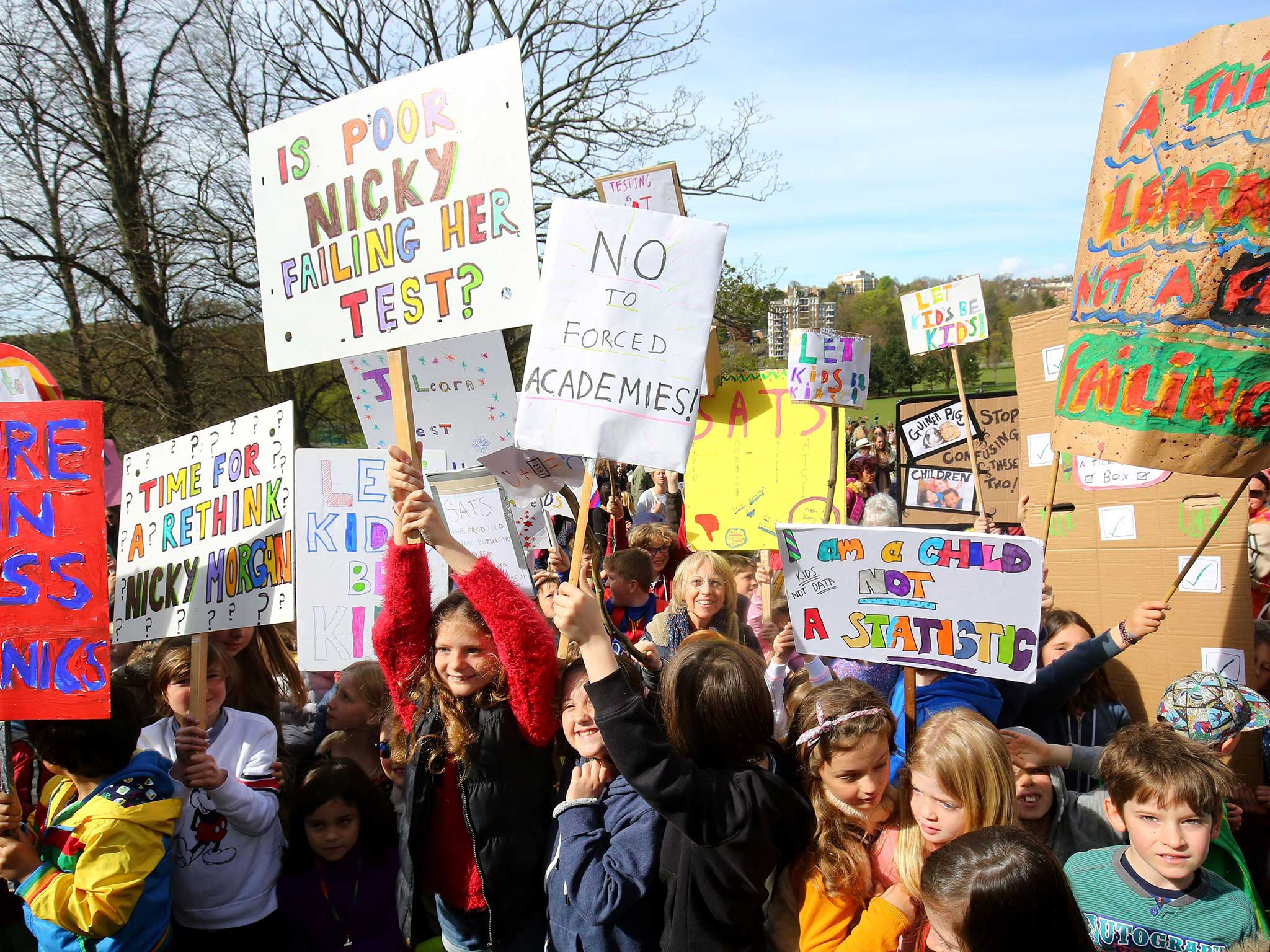At what age should we start testing our children?
The Big Questions: Controversial new primary school exams have lead to many people questioning the value of testing from a young age

Your support helps us to tell the story
From reproductive rights to climate change to Big Tech, The Independent is on the ground when the story is developing. Whether it's investigating the financials of Elon Musk's pro-Trump PAC or producing our latest documentary, 'The A Word', which shines a light on the American women fighting for reproductive rights, we know how important it is to parse out the facts from the messaging.
At such a critical moment in US history, we need reporters on the ground. Your donation allows us to keep sending journalists to speak to both sides of the story.
The Independent is trusted by Americans across the entire political spectrum. And unlike many other quality news outlets, we choose not to lock Americans out of our reporting and analysis with paywalls. We believe quality journalism should be available to everyone, paid for by those who can afford it.
Your support makes all the difference.Why are we asking this now?
A new primary school curriculum came into place this year and with it a series of rigorous national curriculum tests. The SATs – to be taken by children in Year 2 and Year 6 this month – have been widely criticised by parents, teachers, school leaders and government ministers as overly complex and the source of “unnecessary” pressure on children at too young an age.
Up until last year, SATs tests were graded by level, but now parents will be given their child’s raw score in terms of marks – allowing schools to determine whether or not each child has met the national average.
Last week thousands of parents took part in an active protest against the new curriculum exams by taking their children out of school for a day of “fun, outdoor learning”. Campaign organisers Let Kids Be Kids argued that children as young as six were becoming increasingly stressed over unfair testing methods which also account for reduced creative learning and activities in school.
On Tuesday it emerged that one SATs paper due to be taken by 600,000 children had been leaked by a “rogue” exam marker , much to the government’s embarrassment - this being the second incident of its kind in less than three weeks.
When the Department for Education accidentally published a Year 2 exam paper online along with practice materials, the test was withdrawn. The government say this latest error does not compromise results, however, and so the test will go ahead as planned.
Should SATs be scrapped?
Teaching unions argue they should be.
Dr Mary Bousted, general secretary of the Association of Teachers and Lecturers (ATL), said: “The SATs tests are ridiculously inappropriate, testing an insane curriculum, causing children harm and have been incompetently administered from the start.”
Equally insane is the complexity of questions asked of children as young as six and ten. Neither Schools Minister Nick Gibb nor David Cameron were able to answer literacy questions taken from Year 11 exam papers. The Prime Minister’s defence: “The whole point of these questions is to make sure our children are better educated than we are”. Well, quite.
What do teachers say?
While teachers are professionally bound to go ahead with exams teaching and preparation, the majority of head teachers turned a blind eye during last week’s anti-SATs school boycott.
A huge number of educators have expressed their frustrations over the new curriculum tests – increasingly so following an especially tough spelling, grammar and punctuation paper on Monday which left Year 11 students in tears.
“Dreadful!” one teacher wrote. “Children who had succeeded previously in the 'sample' test were sobbing! More able not finishing. If ever a test was set up to prepare children to fail, this was it.”
What does the government say?
Education Secretary Nicky Morgan is becoming used to a chorus of boos and heckles following her wherever she goes, but her department stands firm on exams. Ministers argue the new curriculum is part of a “necessary and important reform”, and it doesn’t look likely the tests system will be scrapped any time soon.
Addressing the leaked exam papers scandal in Parliament on Tuesday, Mr Gibb said it was inevitable that the first year of the new tests would be “challenging”.
He said: “There is some controversy surrounding it, and we don’t apologise for that controversy because we believe as a government in raising academic standards in schools.”
The ATL said the government should “carry out a thorough, independent enquiry into what has gone wrong this year.”
Dr Bousted added: “We are, of course, waiting and willing to help such an enquiry in any way we can”.
Join our commenting forum
Join thought-provoking conversations, follow other Independent readers and see their replies
Comments